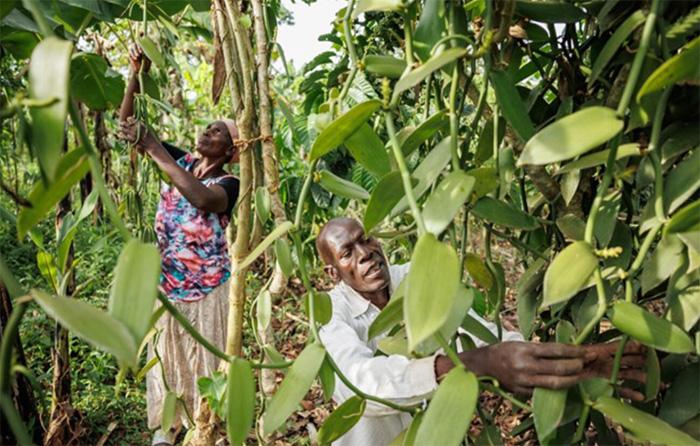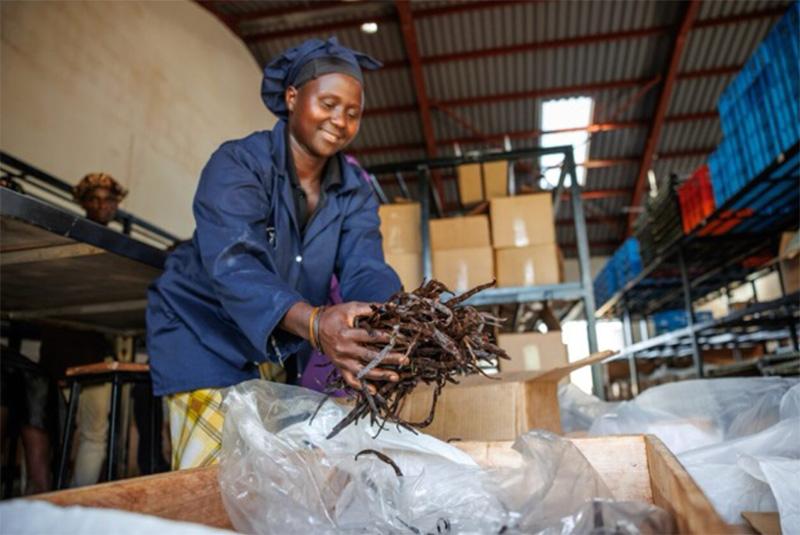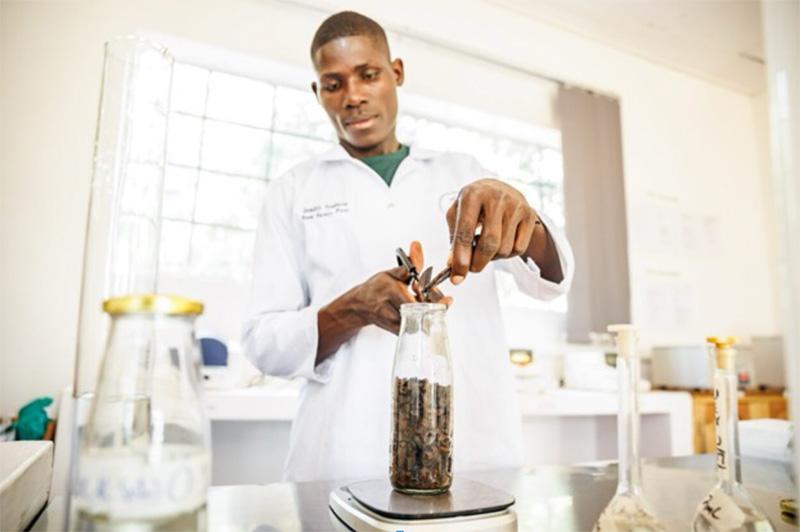
Food for Progress Success Story: Uganda

The FY 2020 $20.7 million Food for Progress project in Uganda named Vines is implemented by Catholic Relief Services (CRS). CRS works with TechnoServe, Frontier Co-op, Sustainable Vanilla Initiative, Virginia Dare, Purdue University, and Uganda’s Private Sector Exporter Association in implementing this project. The project is designed to make Uganda the world’s next leading supplier of high-quality vanilla, by increasing annual exports from 50 MT to 350 MT. Leveraging the expertise of its partners, the project aims to increase vanilla production, strengthen compliance with food safety standards, and develop sustainable market linkages with both U.S. and global vanilla companies. The project targets 16,200 farmers, 836 supply chain actors, and 25 processing companies. It is on its way to add 16,176 new jobs. The project’s main objectives are to increase farmers’ productivity while managing risk, expand the trade of safe and pure Ugandan vanilla, and strengthen the institutional and policy environment for vanilla.

Between 2021 and 2023, the Food for Progress project has built a portfolio of nine Vanilla Innovation and Expansion Fund (VIEF) partners linked to 32 international buyers and nine partnerships with processors on food safety. Through these partnerships, over 11,262 farmers are now in organized supply chains, and 7,363 (5,386 men, 1,977 women) are trained in vanilla agronomy and agroforestry through private and government sector extension services. This has led to improvements in small holder farmers’ competencies, especially in production that has partly contributed to improvements in productivity (from 0.22kg to 0.47kg/vanilla plant in 2023), and overall volume production of vanilla on the farm that has contributed to an improvement in farmers’ gross margin per hectare from $1,019 in 2022 to $1,720 in 2023. At the processor level, quality improvements have continued (higher vanillin content, no mold, etc.), and the volume of exports of cured vanilla has almost doubled (from 133 MT to 244 MT). Through the VIEF partnerships, the private sector investment leveraged by USDA to support the vanilla industry increased from $396,595 in 2022 to $957,340 in 2023.
In FY 2023, 13,639 individuals participated in the project; 4,411 individuals accessed both temporary and permanent jobs because of the Vines project interventions; and 6,705 small holder farmers were integrated into partner supply chains. To strengthen the financial competencies and access, over 4,561 small holder farmers (67% women) have been organized into 200 savings and internal lending communities’ groups with a cumulative saving of $117,118. To improve the quality of land and water resources, Vines enhanced the capacity of farmers in the use of improved Agricultural Techniques and Technologies, which resulted in implementation of improved management practices or technologies on 4,284 hectares.

There are now 22 processors implementing practices to meet export quality standards for vanilla, compared to eleven processors reported in 2022. Exports from these processors represent approximately 60% of the total export volume in Uganda, hence a driving force for overall quality improvements in the Ugandan vanilla sector. To strengthen the policy environment, the FFPr project, in collaboration with the Ministry of Agriculture, Animal Industry and Fisheries and district local governments, initiated the development of 16 ordinances in high and medium producing districts to improve farm security, prevent theft and premature sales, and strengthen harvest date policies to prevent the trade of immature, poor quality vanilla.
